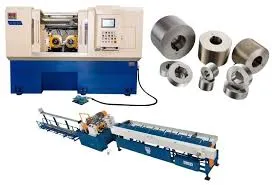
-
 Afrikaans
Afrikaans -
 Albanian
Albanian -
 Amharic
Amharic -
 Arabic
Arabic -
 Armenian
Armenian -
 Azerbaijani
Azerbaijani -
 Basque
Basque -
 Belarusian
Belarusian -
 Bengali
Bengali -
 Bosnian
Bosnian -
 Bulgarian
Bulgarian -
 Catalan
Catalan -
 Cebuano
Cebuano -
 Corsican
Corsican -
 Croatian
Croatian -
 Czech
Czech -
 Danish
Danish -
 Dutch
Dutch -
 English
English -
 Esperanto
Esperanto -
 Estonian
Estonian -
 Finnish
Finnish -
 French
French -
 Frisian
Frisian -
 Galician
Galician -
 Georgian
Georgian -
 German
German -
 Greek
Greek -
 Gujarati
Gujarati -
 Haitian Creole
Haitian Creole -
 hausa
hausa -
 hawaiian
hawaiian -
 Hebrew
Hebrew -
 Hindi
Hindi -
 Miao
Miao -
 Hungarian
Hungarian -
 Icelandic
Icelandic -
 igbo
igbo -
 Indonesian
Indonesian -
 irish
irish -
 Italian
Italian -
 Japanese
Japanese -
 Javanese
Javanese -
 Kannada
Kannada -
 kazakh
kazakh -
 Khmer
Khmer -
 Rwandese
Rwandese -
 Korean
Korean -
 Kurdish
Kurdish -
 Kyrgyz
Kyrgyz -
 Lao
Lao -
 Latin
Latin -
 Latvian
Latvian -
 Lithuanian
Lithuanian -
 Luxembourgish
Luxembourgish -
 Macedonian
Macedonian -
 Malgashi
Malgashi -
 Malay
Malay -
 Malayalam
Malayalam -
 Maltese
Maltese -
 Maori
Maori -
 Marathi
Marathi -
 Mongolian
Mongolian -
 Myanmar
Myanmar -
 Nepali
Nepali -
 Norwegian
Norwegian -
 Norwegian
Norwegian -
 Occitan
Occitan -
 Pashto
Pashto -
 Persian
Persian -
 Polish
Polish -
 Portuguese
Portuguese -
 Punjabi
Punjabi -
 Romanian
Romanian -
 Russian
Russian -
 Samoan
Samoan -
 Scottish Gaelic
Scottish Gaelic -
 Serbian
Serbian -
 Sesotho
Sesotho -
 Shona
Shona -
 Sindhi
Sindhi -
 Sinhala
Sinhala -
 Slovak
Slovak -
 Slovenian
Slovenian -
 Somali
Somali -
 Spanish
Spanish -
 Sundanese
Sundanese -
 Swahili
Swahili -
 Swedish
Swedish -
 Tagalog
Tagalog -
 Tajik
Tajik -
 Tamil
Tamil -
 Tatar
Tatar -
 Telugu
Telugu -
 Thai
Thai -
 Turkish
Turkish -
 Turkmen
Turkmen -
 Ukrainian
Ukrainian -
 Urdu
Urdu -
 Uighur
Uighur -
 Uzbek
Uzbek -
 Vietnamese
Vietnamese -
 Welsh
Welsh -
 Bantu
Bantu -
 Yiddish
Yiddish -
 Yoruba
Yoruba -
 Zulu
Zulu
hydraulic thread rolling machine product
Hydraulic Thread Rolling Machines An Overview
The hydraulic thread rolling machine has emerged as a vital piece of equipment in the manufacturing industry, particularly in sectors that require the precise production of threaded components. These machines utilize hydraulic pressure to create threads on a variety of materials, including metals like steel and aluminum. This article delves into the working principle, advantages, and applications of hydraulic thread rolling machines.
Working Principle
Hydraulic thread rolling machines operate based on the principle of cold forming, where the metal is shaped into threads without removing material. This process involves the use of specially designed rolls that are forced together under high hydraulic pressure. As the workpiece, usually a cylindrical rod, passes through these rolls, threads are formed due to the plastic deformation of the material. The pressure is typically adjustable, allowing operators to optimize the process based on the material type and desired thread specifications.
One of the key benefits of this method is the ability to produce threads with superior strength compared to traditional cutting methods. This is due to the fact that the rolling process maintains the grain structure of the metal, resulting in threads that are less prone to failure under stress.
Advantages of Hydraulic Thread Rolling Machines
1. Efficiency Hydraulic thread rolling machines are highly efficient, capable of producing a large number of threaded components in a relatively short period. This is largely due to their ability to form threads without the need for extensive machining time, which can often slow down production.
hydraulic thread rolling machine product

2. Cost-Effectiveness Although the initial investment in hydraulic rolling machines may be significant, the long-term savings can be substantial. The reduction in material waste and lower energy consumption during production contribute to a more favorable return on investment.
3. Enhanced Thread Quality The cold forming process results in threads that are not only stronger but also more precise. This leads to improved fitting accuracy and overall product quality, which is critical in applications such as automotive manufacturing and aerospace engineering.
4. Versatility Hydraulic thread rolling machines can accommodate a wide range of materials and thread sizes, making them suitable for various industries. Whether producing fine threads for small components or larger threads for heavy machinery, these machines offer the flexibility required for diverse applications.
Applications
Hydraulic thread rolling machines are widely used in several sectors. In the automotive industry, they are essential for creating threaded components such as bolts, screws, and studs that must withstand significant mechanical stress. Similarly, in the aerospace sector, where safety and reliability are paramount, these machines ensure the production of high-strength threaded parts.
Additionally, industries such as construction and manufacturing benefit from the ability to produce custom-threaded products quickly. As the demand for precision-engineered components continues to grow, the role of hydraulic thread rolling machines will only become more critical.
In conclusion, hydraulic thread rolling machines represent a sophisticated and effective solution for the production of threaded components. Their efficiency, cost-effectiveness, and ability to produce high-quality threads position them as an indispensable tool across various manufacturing sectors. As technology advances, we can expect further innovations in this field, enhancing productivity and product quality even more.
